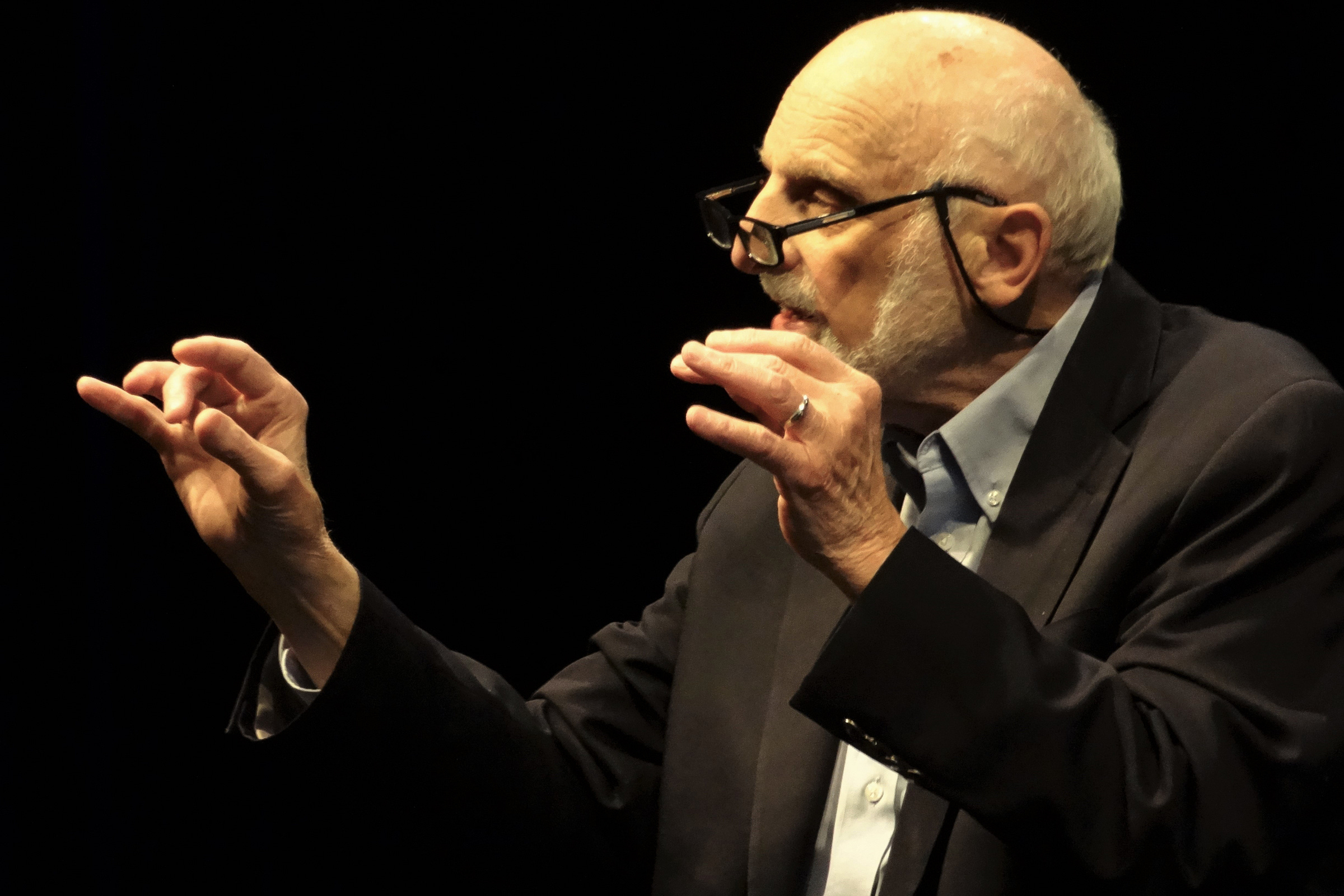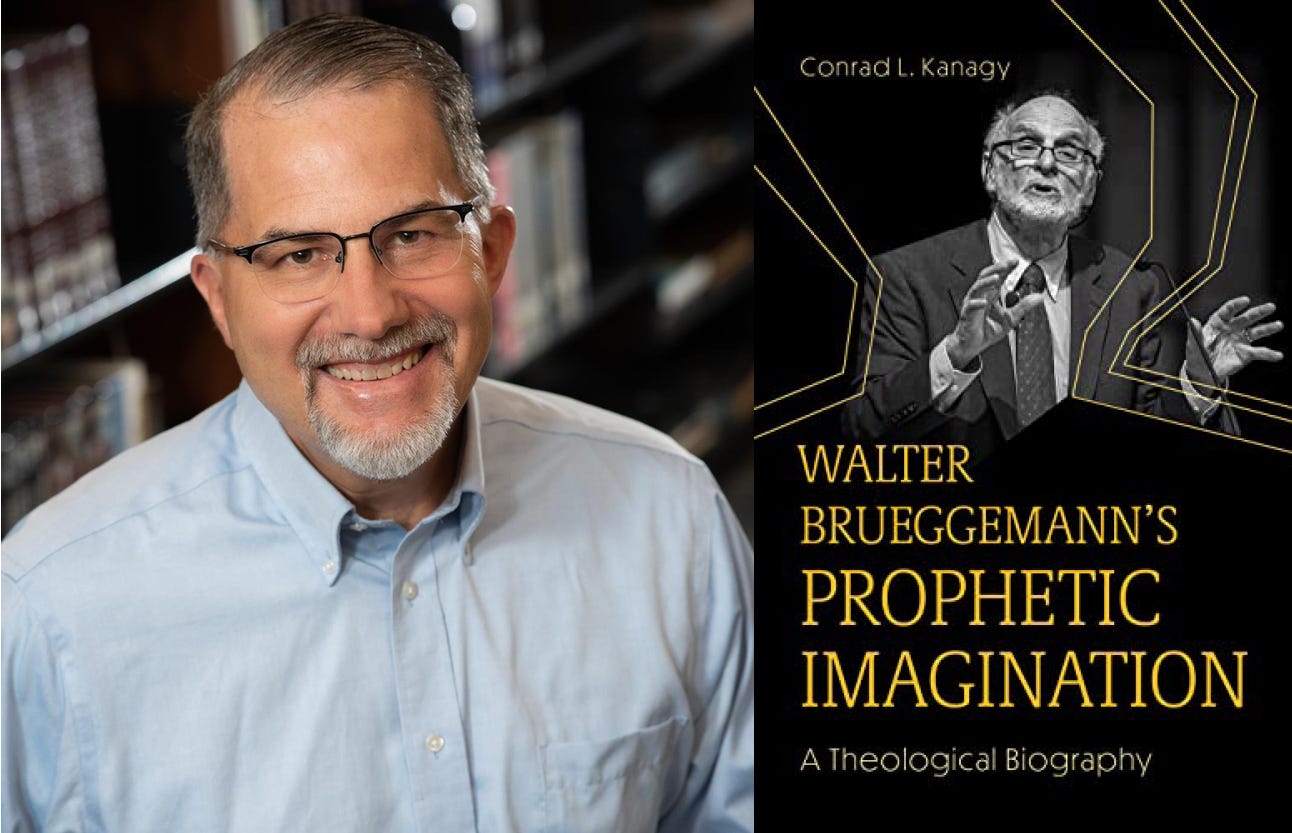Review & Giveaway: Walter Brueggemann’s Prophetic Imagination
Walter Brueggemann has written scores of books. If one wants to understand the insights of this biblical scholar, where does one begin?
There’s his commentary on Genesis, so one could start by reading his thoughts on the first book of the Bible. Alternatively, a reader might choose one of his survey textbooks. But should you pick up Theology of the Old Testament: Testimony, Dispute, Advocacy or An Introduction to the Old Testament: The Canon and Christian Imagination? Of course, the safe choice would be his most famous volume: The Prophetic Imagination.
Let me suggest a different direction. The best way to dive into Brueggemann is not through a book he wrote but with a book written about him. Conrad Kanagy’s Walter Brueggemann’s Prophetic Imagination: A Theological Biography is the best entry point into this modern prophet. It’s an essential read for anyone eager to understand the life of this incredible scholar or the shifts in biblical scholarship he helped bring about.
Kanagy approaches his subject by drawing on Jesus’s parable of the sower in Matthew 13. He seeks to convey the soil from which Brueggemann arose, the seed he carried, and the places in which he sought to sow it. This is accomplished by drawing not only on Brueggemann’s formal work but also on an extensive series of interviews that provided Kanagy with fascinating access into the mind of his subject.
“My effort was to read Walter as he read the biblical text and to stay within the bounds of that text,” Kanagy explained in the preface. “I have sought to exegete Walter’s life as he exegeted the biblical text. Make connections. Add sociological context. Add theology.”
Looking at the soil that nurtured Brueggemann is to be reminded of his humble origins. He was the son of an undereducated father whose own career in ministry — both in its trials and triumphs — cast a large shadow. Raised in rural Missouri and reared in the Evangelical Synod of North America (a German-rooted Protestant tradition that would later become part of the United Church of Christ), Kanagy describes how Brueggemann’s lower socioeconomic status, identity as a pastor’s kid, and particular personality rendered him a constant outsider. From an early age, he found himself on the periphery imagining how the world might be different.
In terms of the seed carried, Brueggemann became a prophet whose message emerged from the academy but was directed to the church. He critiqued dominant modes of biblical interpretation because they put distance between the reader and the text. Instead, he sought to help pastors hear God’s voice within the text — fresh readings that would often challenge readers to imagine new and sometimes uncomfortable truths given the context of their day. Specifically, Kanagy highlights the radical nature of Brueggemann’s economic ideas that arose from his study of scripture and contemporary social science.

Finally, there’s all those places where the seed has been sown. From local pastors to convenings of biblical scholars, Brueggemann’s biblical interpretation and imaginative reflections have been read by people across the theological spectrum and within diverse academic disciplines. Adding to Kanagy’s reports, I’ll share two brief anecdotes of my own:
Several years ago, I heard Brueggemann speak at a church in northwest Missouri. One of the attendees asked him why he was one of the few faith leaders that both congregations and schools across the theological spectrum invited to speak. He paused for the briefest moment and then said, “It’s because they know I stay close to the text.” He expanded on that comment by noting that many didn’t like his conclusions, but they couldn’t argue with his rootedness in scripture.
More recently, I attended a lecture in a political science department at a major university. The visiting scholar, whose presentation was on political movements, started quoting Brueggemann to a room full of quantitatively-minded social scientists as part of the theoretical underpinnings of her argument. I’m confident most of the room hadn’t heard his name before, but it was fascinating to see the extensive influence of his work in spaces that rarely engage with biblical interpretation.
Through Kanagy’s book, we get a rare glimpse into the backstory of a prophet. Brueggemann’s words are plentiful, powerful, and inspiring. This biography helps us see what’s behind those words, what influenced those words, and where those words have resonated most fully.
In addition to reading the book, you can hear more from Kanagy about his perceptions of Brueggemann by listening to his recent appearance on Dangerous Dogma.
We’re also excited that Kanagy has agreed to sign a copy of Walter Brueggemann’s Prophetic Imagination to be given away to one lucky paid subscriber of A Public Witness. So upgrade today and you might find this theological biography in your mailbox soon.
As a public witness,
Beau Underwood




An excellent review, Beau, on the work of a prophet of longstanding. I’ve been reading Walter Bruggemann and hearing him lecture since 1970. He has sparked “prophetic imagination” in hundreds, if not thousands, of pastors and laity alike.